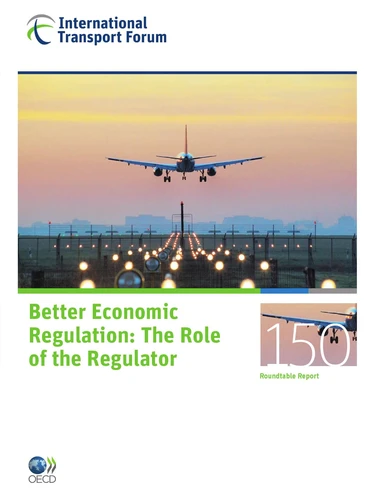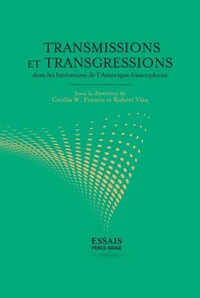Better Economic Regulation. The Role of the Regulator
Par :Formats :
Disponible dans votre compte client Decitre ou Furet du Nord dès validation de votre commande. Le format PDF est :
- Compatible avec une lecture sur My Vivlio (smartphone, tablette, ordinateur)
- Compatible avec une lecture sur liseuses Vivlio
- Pour les liseuses autres que Vivlio, vous devez utiliser le logiciel Adobe Digital Edition. Non compatible avec la lecture sur les liseuses Kindle, Remarkable et Sony
 , qui est-ce ?
, qui est-ce ?Notre partenaire de plateforme de lecture numérique où vous retrouverez l'ensemble de vos ebooks gratuitement
Pour en savoir plus sur nos ebooks, consultez notre aide en ligne ici
- Nombre de pages117
- FormatPDF
- ISBN978-92-821-0327-2
- EAN9789282103272
- Date de parution30/05/2011
- Copier Coller01 page(s) autorisée(s)
- Protection num.Digital Watermarking
- Taille2 Mo
- Transferts max.Autorisé
- Infos supplémentairesPDF avec Watermark
- ÉditeurOECD
Résumé
Efficient provision of transport infrastructure is critical to economic growth. The long asset lives of much transport infrastructure indicates governance through regulation, rather than through contract or public ownership. This can ensure predictability in long-term relationships whilst preserving some flexibility to deal with changes in external circumstances.
The transparency created by a fully independent regulator is invaluable for ensuring sufficient investment is forthcoming, while maintaining reasonable conditions for user access.
Discussion at the Roundtable focussed on how to achieve effective independent regulation and how to reconcile independence with the legitimate control of policy by the executive part of government. Independent regulation is not seen as a universal default governance arrangement. Much of the discussion focused on when to regulate and when to rely on competition, even if imperfect, to drive efficiency.
The discussions underscored that there are opportunities to improve performance significantly in the aviation, rail and road sectors, by learning from successful experience in improving governance structures in a range of countries.
Discussion at the Roundtable focussed on how to achieve effective independent regulation and how to reconcile independence with the legitimate control of policy by the executive part of government. Independent regulation is not seen as a universal default governance arrangement. Much of the discussion focused on when to regulate and when to rely on competition, even if imperfect, to drive efficiency.
The discussions underscored that there are opportunities to improve performance significantly in the aviation, rail and road sectors, by learning from successful experience in improving governance structures in a range of countries.
Efficient provision of transport infrastructure is critical to economic growth. The long asset lives of much transport infrastructure indicates governance through regulation, rather than through contract or public ownership. This can ensure predictability in long-term relationships whilst preserving some flexibility to deal with changes in external circumstances.
The transparency created by a fully independent regulator is invaluable for ensuring sufficient investment is forthcoming, while maintaining reasonable conditions for user access.
Discussion at the Roundtable focussed on how to achieve effective independent regulation and how to reconcile independence with the legitimate control of policy by the executive part of government. Independent regulation is not seen as a universal default governance arrangement. Much of the discussion focused on when to regulate and when to rely on competition, even if imperfect, to drive efficiency.
The discussions underscored that there are opportunities to improve performance significantly in the aviation, rail and road sectors, by learning from successful experience in improving governance structures in a range of countries.
Discussion at the Roundtable focussed on how to achieve effective independent regulation and how to reconcile independence with the legitimate control of policy by the executive part of government. Independent regulation is not seen as a universal default governance arrangement. Much of the discussion focused on when to regulate and when to rely on competition, even if imperfect, to drive efficiency.
The discussions underscored that there are opportunities to improve performance significantly in the aviation, rail and road sectors, by learning from successful experience in improving governance structures in a range of countries.


















